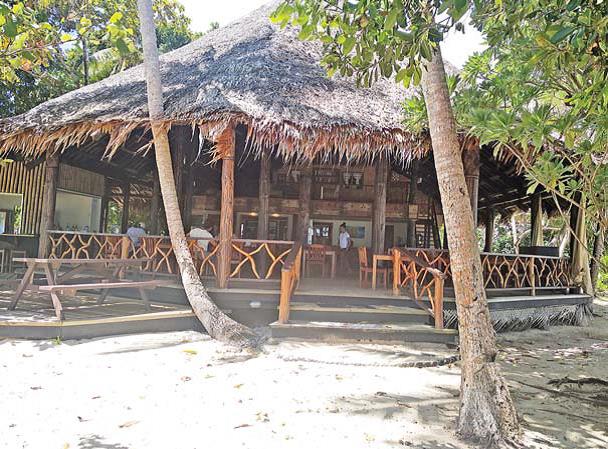THERE is one reason why Leleuvia Island Resort management bans single use plastic and all toxic chemicals, because it is concerned about pollution and the impact it has on our natural ecosystem.
I had heard a lot about Leleuvia Island Resort but had not been able to visit the place until last week, when I received an invitation to visit the island.
Quite often when we make plans to visit hotels or resorts, it is to do with a road trip to the Coral Coast, even to Nadi, followed by a boat trip to the Mamanucas or the Yasawas.
Most definitely it is always an awesome experience basking in the sun, white sandy beaches and crystal clear waters and a moment of relaxation, that’s what one is after.
For those in the Central Division, you know there is always another alternative, if you are not interested in the long road trips or boat ride.
About 45 minutes from Suva is Bau landing, with boat transfers to take you to one of the most secluded and beautiful islands in Fiji – Leleuvia.
You ask for a white sandy beach, water sports and tantalising dishes Leleuvia Island Resort offers you that. It is the perfect island for relaxation and self-reflection.
“The island is owned by the Cakobau family and resort owned by PBS (Pacific Building Solutiuons).
“Leleuvia means to be on the way somewhere, to be going somewhere, and because this is the entrance in to Bau waters, behind us is the main passage into Bau waters, Davetalevu. So anyone going to Bau would have to come here first, rest before proceeding to Bau.
“Leleuvia for us is on the way of I guess about understanding more about our culture but also more about how we can live in tune with nature. In the past our fore fathers survived by living in tune with nature. They took good care of nature and nature looked after them.
“Guests keep coming back because of the people, because of who we are and we can only be who we are if we totally embrace ourselves in our culture and our heritage, that’s why we are different.
“We banned single use plastics a few years ago, and last year we put in bans on chemical sunscreens and not many people know that this chemical is disastrous to the ocean.
“One drop is enough to affect the DNA on corals and so you can imagine if it has an effect on corals it also has effect on us. If we put chemical sunscreens on our skin, within an hour it’s in our bloodstreams,” said Colin Philp the resort manager.
“It is known that significant amounts of sunscreen wash off into the sea and, in controlled experiments, some sunscreen chemical UV filters are toxic and have negative effects on corals and other marine life even at concentrations as low as 62 parts per trillion. Oxybenzone has been identified as the main substance of concern. Organic UV filters have been reported to induce acute toxicities, developmental toxicities and reproductive toxicities to different organisms. Some studies have shown that sunscreen ingredients promote viral infections in bacteria and zooxanthellae, causing coral bleaching,” states a report by the International Coral Reef Initiative which was published by the Swedish government’s Ministry of Environment and Energy.
“We use non-toxic biodegradable chemicals, there are a few practical reasons because of our waste treatment. We use an aerobic septic tank system, which breaks down using oxygen and bacteria, so if you put harsh chemicals in there it kills bacteria,” added Mr Philp.
Mr Philp added one of the key components of sustaining the tourism industry is by protecting the environment.
“If we can have a better appreciation of the ocean than we can protect that and it makes us feel really good that we are able to make a change in people’s lives.
“For me culture and conservation of our eco-system are the two key things. I have heard of other areas where the ocean is polluted and filthy, and people keep coming back to Fiji.
“To be able to go out snorkelling and see corals and fish, that’s why they keep coming back, and if we are not doing what’s right to protect our eco-system, then we are not doing anything right at all for our future generation.”



